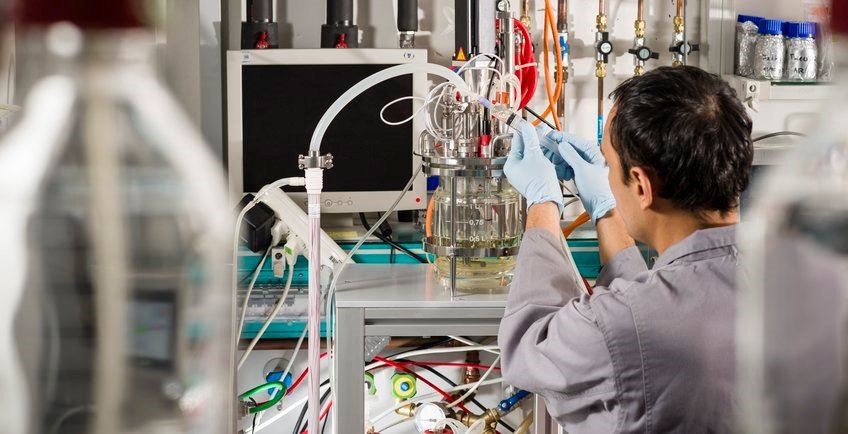
Production of Viral Vaccines in High-Cell-Density Suspension Cultures
Motivation
Process intensification for the production of various animal cell culture-based biopharmaceuticals relies on high-cell-density (HCD) cultures. While processes in perfusion mode are commonly applied for manufacturing of recombinant proteins [1], the production of viral vaccines under HCD conditions has been little explored, so far. In part, this is due to the often significant decrease in cell-specific yields (virus particles/cell) and/or a low volumetric productivity (virus particles/L·d) compared to conventional batch processes – also called “cell density effect” [2, 3]. Furthermore, virus-induced apoptosis and cell death render continuous virus production strategies in perfusion mode challenging. Nevertheless, to increase virus yields, the use of advanced process strategies suitable to overcome the intrinsic challenges of virus propagation in HCD cultures should be promoted. This concerns in particular hybrid perfusion/fed-batch processes [4]. In addition, available cell retention devices should be better characterized regarding host cell retention and cell-virus separation.
Aims of the project
- Evaluation of different retention systems for HCD suspension cell culture in viral vaccine production
- Comparison of possible feeding strategies during cell growth and virus replication phase for maximum yields taking into account subsequent downstream processing steps
- Monitoring of critical process parameters to characterize cell growth and virus replication dynamics
- Analysis of the impact of medium composition on virus quality and process yields
- Identification of critical parameters for integration of upstream and downstream operations